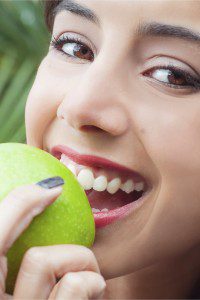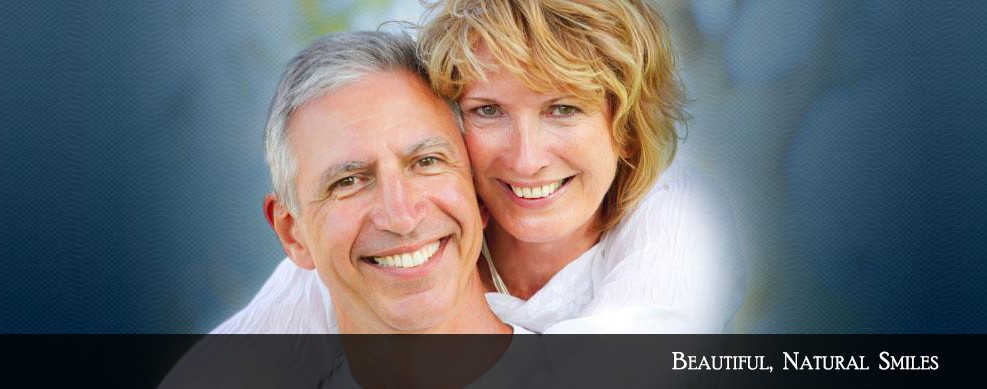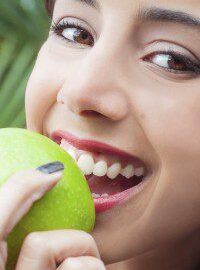 Brushing and flossing are the two best ways to avoid tooth decay, but what you eat and drink also plays a part. Tooth decay is caused by acids eating away at tooth enamel, and those acids are typically produced by bacteria on the surface of teeth and beneath the gums. Certain foods and drinks can either combat or contribute to tooth decay, and knowing the difference can help you manage your risk.
Brushing and flossing are the two best ways to avoid tooth decay, but what you eat and drink also plays a part. Tooth decay is caused by acids eating away at tooth enamel, and those acids are typically produced by bacteria on the surface of teeth and beneath the gums. Certain foods and drinks can either combat or contribute to tooth decay, and knowing the difference can help you manage your risk.
The foods and drinks that contribute to tooth decay typically fall into one of two categories – either high in sugar (which provides food for bacterial colonies), or high in acid, which weakens enamels. Examples of these foods and drinks are easy to come by:
– Sugary sweets (such as candy) and refined carbohydrates (such as chips, bread, and pasta) are likely to linger in your mouth, feeding bacteria
– Soda and sugary drinks can be both acidic and sugary, contributing both to stronger bacteria colonies and weakening the enamel that protects the teeth.
– Lemons, oranges, tomatoes, and their juices all have some sugar, but are very acidic – eating or drinking them is fine, but you should avoid sucking on lemon wedges for extended periods of time, as the acid is strong enough to erode enamel very quickly.
Much like some foods can cause tooth decay, there are also foods that can help fight tooth decay. Typically, these are foods that are fiber or calcium rich, and low in sugar and acid. Examples include:
– Foods like celery require a lot of chewing, which produces saliva, which helps wash other food particles off of teeth
– Foods like milk, cheese, and plain yogurt provide important minerals that will help strengthen your teeth.
– Sugarless gum (containing Xylitol) will stimulate saliva to help wash food particles from your mouth, and the Xylitol will actually help fight the bacterial colonies within your mouth.
– Like xylitol, green and black teas suppress bacteria within the mouth
While it may not be practical to avoid all sugary and acidic foods, knowing that they can contribute to tooth decay allows you to take steps to mitigate the risk. After eating or drinking sugary or acidic foods, brushing and flossing can help remove the sugars and acids to keep bacteria and tooth decay away.
For more information on oral health contact Dr. Rosenbuch at (561) 394-7888 or visit our website at https://cliverosenbuschdds.com/







